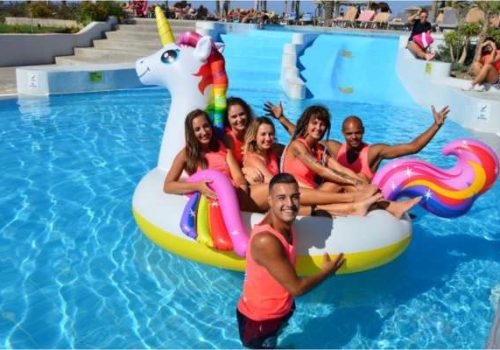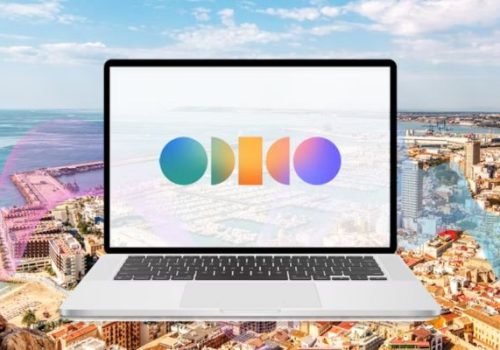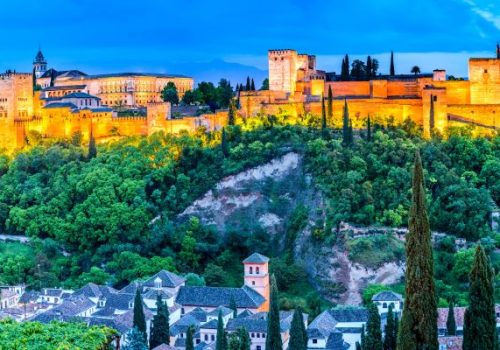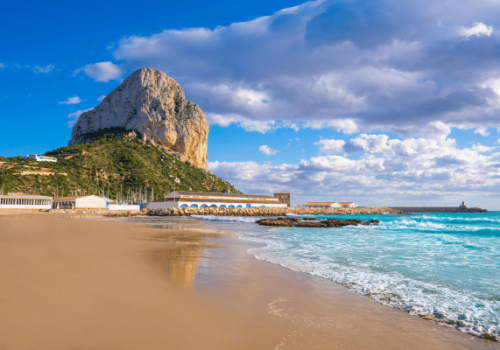Living and working in Mallorca
Mallorca, the largest of Spain’s Balearic Islands, is a Mediterranean paradise known for its stunning beaches, vibrant culture, and laid-back lifestyle. Beyond its reputation as a tourist hotspot, Mallorca offers excellent opportunities for expats seeking a balance between career growth and an enviable quality of life. Whether you’re drawn to the bustling streets of Palma, the tranquil countryside, or the idyllic coastline, Mallorca provides a unique experience for professionals and families alike. This comprehensive guide explores living and working in Mallorca, including job opportunities, accommodation, cost of living, and tips for embracing island life.
Latest available jobs in Palma de Mallorca & Spain
- Hotel jobs, Tourism
- Cyprus, Greece, Spain
- Customer support
- Spain
- Adventure jobs, Hotel jobs, Tourism
- Bulgaria, Croatia, Egypt, Greece, Italy, Spain, Turkey
- Customer support
- Greece, Malta, Spain
Working in Mallorca
Working Conditions in Mallorca
Mallorca offers a relaxed yet professional work environment, aligned with Spain’s labor laws. The standard workweek is 40 hours, typically Monday through Friday, although many roles in tourism and hospitality involve shifts and weekend work. Employees are entitled to at least 30 days of paid annual leave, which includes public holidays.
Spain’s labor protections ensure fair wages, regulated working hours, and comprehensive benefits such as paid parental leave, sick leave, and unemployment benefits. Learning Spanish or Catalan is essential for most roles, though English-speaking positions are available in tourism, international companies, and education.
Job Opportunities in Mallorca
Mallorca’s economy revolves around key industries such as tourism, hospitality, real estate, agriculture, healthcare, and education. Palma, the island’s capital, is the primary hub for business and employment opportunities.
Tourism and Hospitality
Tourism is the backbone of Mallorca’s economy, with opportunities in hotels, restaurants, travel agencies, and event management. Seasonal work is abundant, especially during the summer months, and roles often cater to multilingual professionals.
Real Estate and Property Management
Mallorca’s thriving property market offers roles in real estate sales, property management, and construction. With the island’s popularity among expats and retirees, demand for English-speaking professionals in this sector is high.
Education
International schools in Mallorca frequently hire teachers and administrators, particularly those with experience in English-language education. Language academies also offer positions for English and other language instructors.
Healthcare
The island’s healthcare system creates demand for qualified professionals, including doctors, nurses, and medical technicians. Private clinics catering to the expat community often seek bilingual staff.
Creative Industries and Remote Work
Mallorca’s serene environment attracts creative professionals and digital nomads. Writers, designers, and remote workers often find inspiration and productivity on the island, leveraging its excellent internet infrastructure.
Networking is essential for finding opportunities in Mallorca. Platforms like LinkedIn and local job boards such as InfoJobs.net and TuriJobs.com are valuable resources. Attending expat meetups and connecting with local professionals can further enhance your job search.
Salaries in Mallorca
Salaries in Mallorca are generally lower than in mainland Spain but align with the island’s lower cost of living. The average monthly gross salary is approximately €1,500, though earnings vary by industry and role:
- Hospitality and tourism: €1,200–€2,000 per month
- Real estate and property management: €1,800–€3,500
- Healthcare professionals: €2,000–€4,000
- Teachers and educators: €1,500–€2,500
- Creative industries and remote work: €1,500–€3,000
Salaries are often supplemented by tips or commissions in roles like hospitality and sales, providing additional earning potential.
Income Tax in Mallorca
Spain has a progressive income tax system, with rates ranging from 19% to 47%, depending on income levels. Social security contributions, covering healthcare, pensions, and unemployment benefits, are typically around 6.35% of gross income for employees.
Expats may benefit from Spain’s Beckham Law, which offers favorable tax rates for highly skilled professionals working in the country. Consulting a tax advisor is recommended to navigate local regulations and maximize benefits.
Working Culture in Mallorca
The working culture in Mallorca is a mix of professionalism and Mediterranean relaxation. Workplaces emphasize punctuality and productivity while encouraging a healthy work-life balance. The concept of “siesta” is still observed in some areas, with businesses closing in the early afternoon and reopening later in the day.
Social connections are important in Mallorcan workplaces. Networking with colleagues, participating in team events, and engaging in cultural activities can help build trust and strengthen relationships.
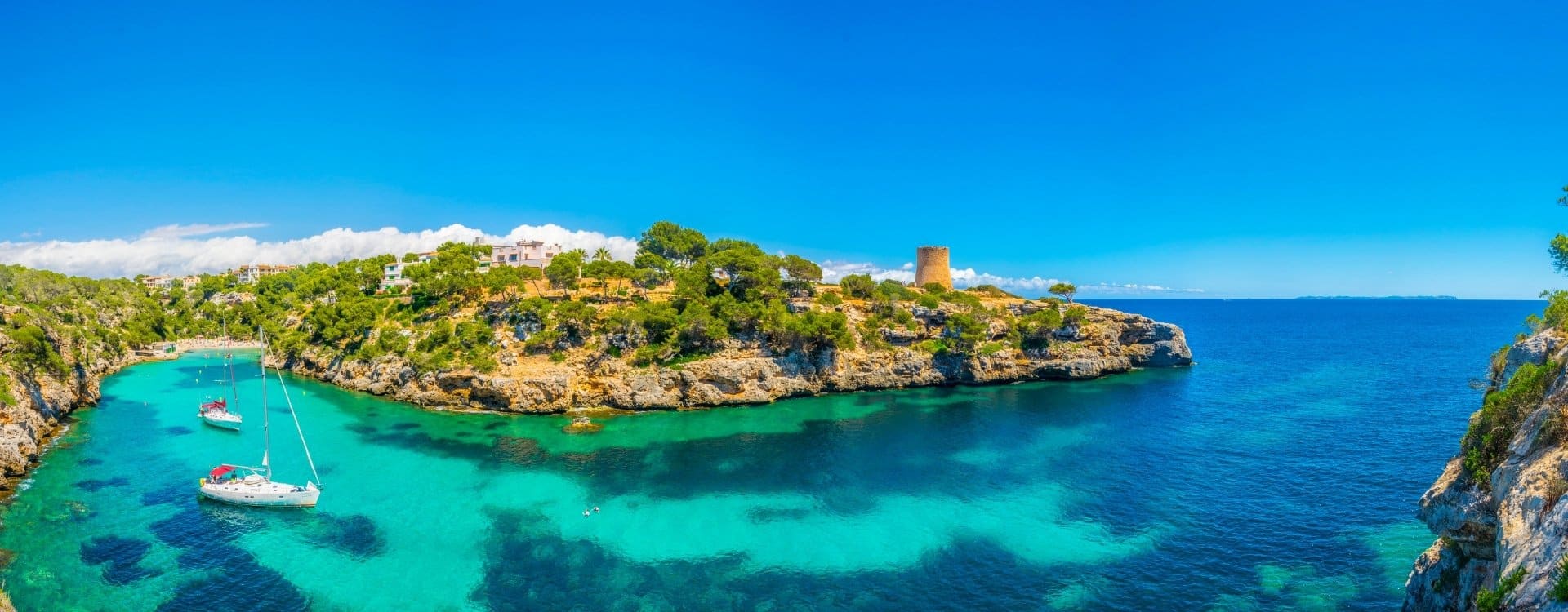
Benefits of Living and Working in Mallorca
To speak of Mallorca is to evoke an island where life unfolds with a rhythm so effortlessly harmonious, it feels as if the Mediterranean itself set the tempo. There is a serenity to life here, an unhurried pace that seeps into your soul the moment you arrive. To live and work in Mallorca is not merely to exist—it is to immerse oneself in a canvas of azure skies, terracotta roofs, and verdant hills kissed by the sun.
The island offers more than stunning scenery. It is a place where a high quality of life converges with a deep connection to history and nature. Mallorca’s residents, both locals and expats, bask in the luxury of a Mediterranean climate that delivers over 300 days of sunshine annually. Whether strolling through the vibrant markets of Palma or sipping a cortado in a quiet coastal café, life here is layered with the kind of richness that comes from simplicity.
Mallorca’s central location in the Mediterranean makes it a gateway to both mainland Spain and Europe. But for many, the island itself is more than enough—a self-contained world of beauty, culture, and opportunity.
Accommodation in Mallorca
The experience of finding a home in Mallorca is as varied as the island’s landscapes. There are bustling urban quarters in Palma, where modern apartments stand alongside ancient architecture, their balconies spilling with bougainvillea. Here, mornings are accompanied by the peal of church bells and the aroma of freshly baked ensaimadas from nearby bakeries.
Outside Palma, coastal towns such as Portixol and Port d’Andratx offer vistas so breathtaking they seem lifted straight from a postcard. In these enclaves, the sea becomes part of your daily routine—a turquoise expanse that greets you at breakfast and lulls you to sleep at night.
Inland, rustic fincas dot the rolling countryside, each a sanctuary of quiet and charm. These traditional homes, with their weathered stone facades and shaded courtyards, invite their inhabitants to embrace a slower, more deliberate way of living.
The process of renting or buying property in Mallorca may require patience, but the rewards are worth it. Websites such as Idealista and Fotocasa serve as starting points, while local real estate agents can provide invaluable insights. Expect to pay anywhere from €800 to €1,500 per month for a one-bedroom apartment in Palma, while suburban and rural areas offer more affordable options starting at €600.
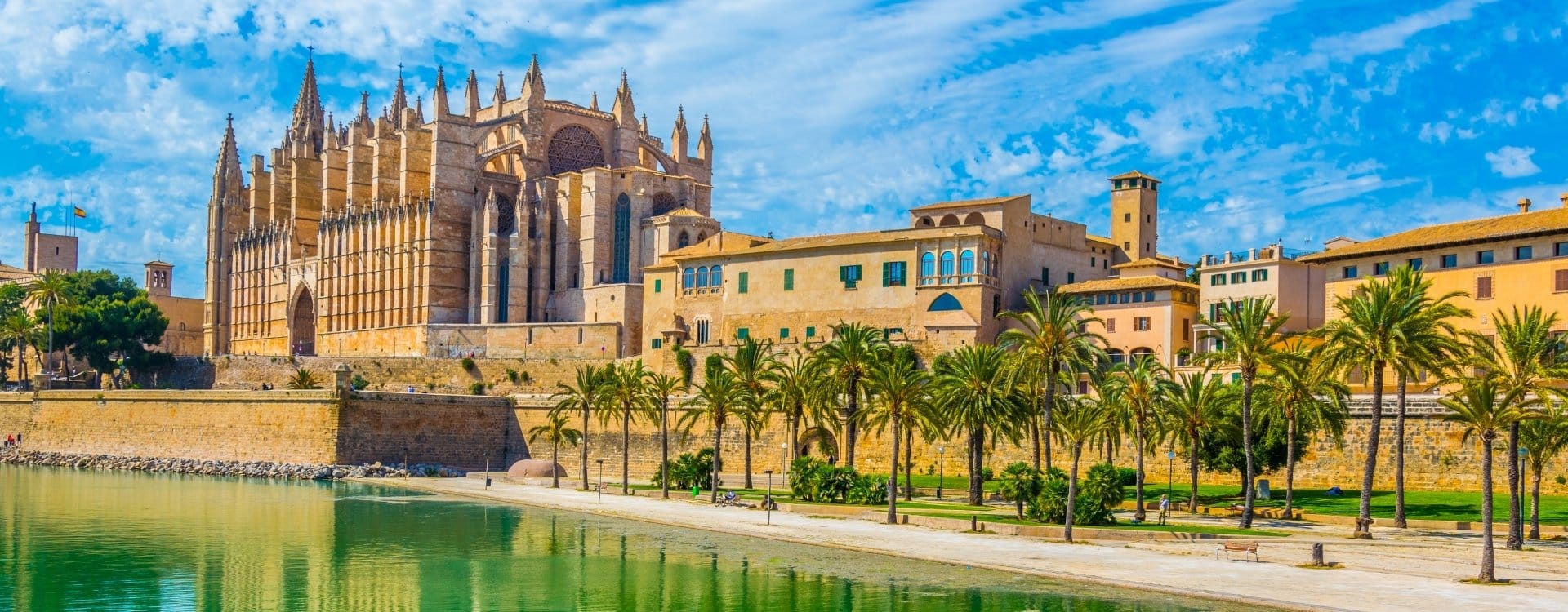
Cost of Living in Mallorca
Living in Mallorca is not without its costs, but the island provides value that far surpasses its price tag. Groceries, filled with the freshest produce and seafood, feel more indulgent than transactional. A visit to the Mercat de l’Olivar in Palma transforms shopping into an experience, as vibrant stalls overflow with oranges, artichokes, and fish so fresh they seem to shimmer.
Dining out ranges from humble tapas bars—where €10 secures a feast of flavors—to fine-dining establishments that elevate local ingredients to art. Utilities and public transport are reasonably priced, with a monthly transit pass costing around €50, ensuring that the island’s treasures are within easy reach.
Life here is a tapestry woven from sunshine, sea air, and communal spirit, where even modest budgets can carve out a rich existence.
Public Transport in Mallorca
Mallorca’s transport system feels almost poetic in its simplicity. Buses connect the island’s towns and villages with comforting regularity, while Palma’s metro and train lines offer efficient routes for commuters and explorers alike. Yet the true magic of getting around lies in cycling, where the landscape unveils itself with each turn of the pedal.
The TIB network serves as the island’s circulatory system, its red and yellow buses weaving through coastal roads and countryside. A monthly pass costs around €40, offering unlimited travel and a front-row seat to Mallorca’s breathtaking scenery. For more remote corners, car rentals open a door to discovery, enabling journeys that feel as if you’ve stumbled upon secrets hidden in plain sight.
Eating in Mallorca
To eat in Mallorca is to experience the island’s essence on a plate. Its cuisine, rooted in tradition and enriched by the sea, is an invitation to savor every moment. At the heart of Mallorcan dining is pa amb oli, a deceptively simple dish of rustic bread, olive oil, and ripe tomatoes that sings of the land’s abundance.
Markets, such as the Santa Catalina Market, offer glimpses into the island’s culinary soul, with vendors selling local treasures like sobrasada, an intensely spiced sausage, and golden jars of honey. Dining out invites you to explore flavors that range from hearty stews to elegant seafood, each meal accompanied by the gentle lilt of the sea breeze.
Here, meals are not rushed transactions but rituals, punctuated by laughter, clinking glasses, and the unspoken understanding that life’s greatest joys often begin at the table.
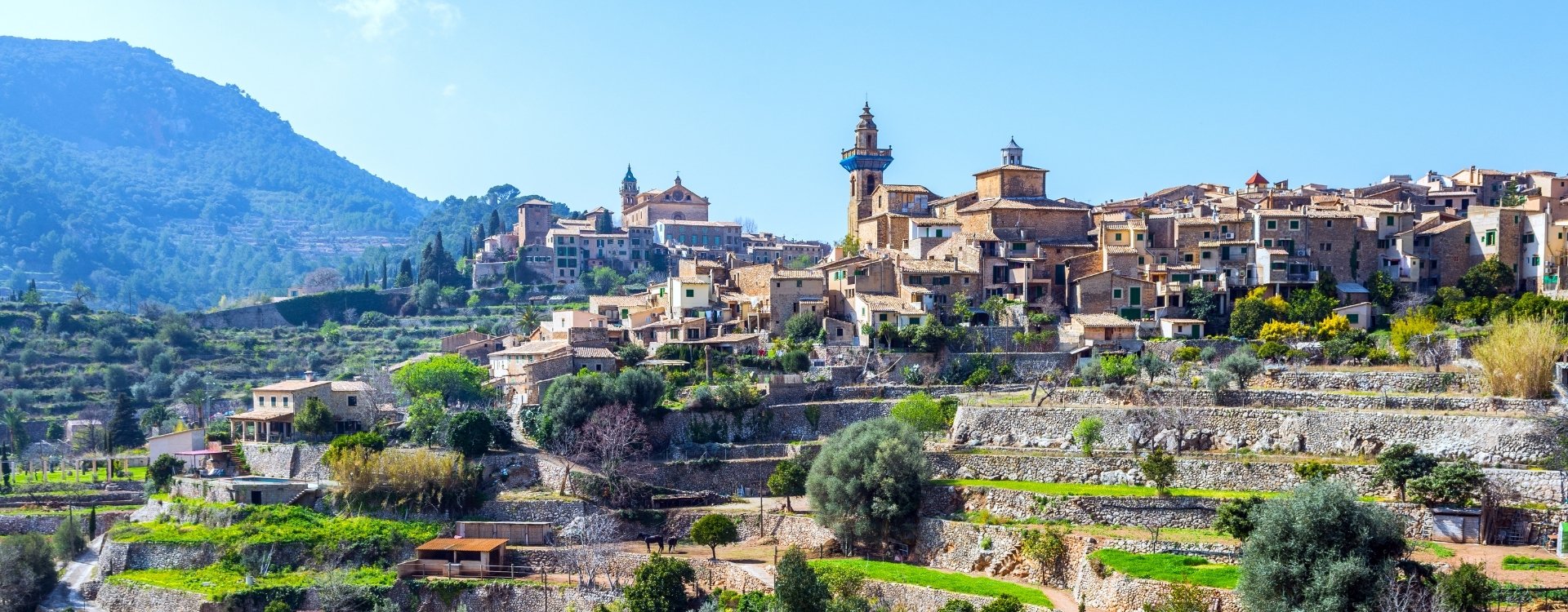
Places to Go Running or Working Out
In Mallorca, fitness isn’t confined to a gym—it’s written into the landscape. Run along the Parc de la Mar, where every step is accompanied by the sight of the Mediterranean sparkling in the sun. Take to the trails of Serra de Tramuntana, where the earth seems to rise and fall with your heartbeat.
For those seeking structure, gyms like Palma Sport & Tennis Club offer world-class facilities. But the truth is, Mallorca itself is the ultimate fitness center. Every hill, every coastline, every shaded grove invites you to move, to breathe, to be fully alive.
What to Do on Weekends
Mallorca transforms the mundane into the magical. Saturdays might find you wandering Palma’s Old Town, each turn revealing a new treasure—a hidden café, a centuries-old square, the perfect vantage point for a sunset.
Sundays? Those are for escape. A quick journey to Es Trenc Beach delivers soft sands and crystalline waters, while the hiking trails of the Serra de Tramuntana remind you of nature’s power to inspire.
Or perhaps you’ll lose yourself in a festival. The fiery spectacle of Nit de Foc, the joyous chaos of Sant Joan—each event isn’t just a celebration; it’s a piece of Mallorca’s soul, shared with you.
Weather in Mallorca
Mallorca’s weather isn’t just kind—it’s generous. Summers shimmer at 30°C (86°F), inviting you to the beaches. Winters rarely dip below 10°C (50°F), offering crisp mornings and golden afternoons perfect for exploration. Spring and autumn? They’re gifts—gentle, temperate, alive with possibility.

